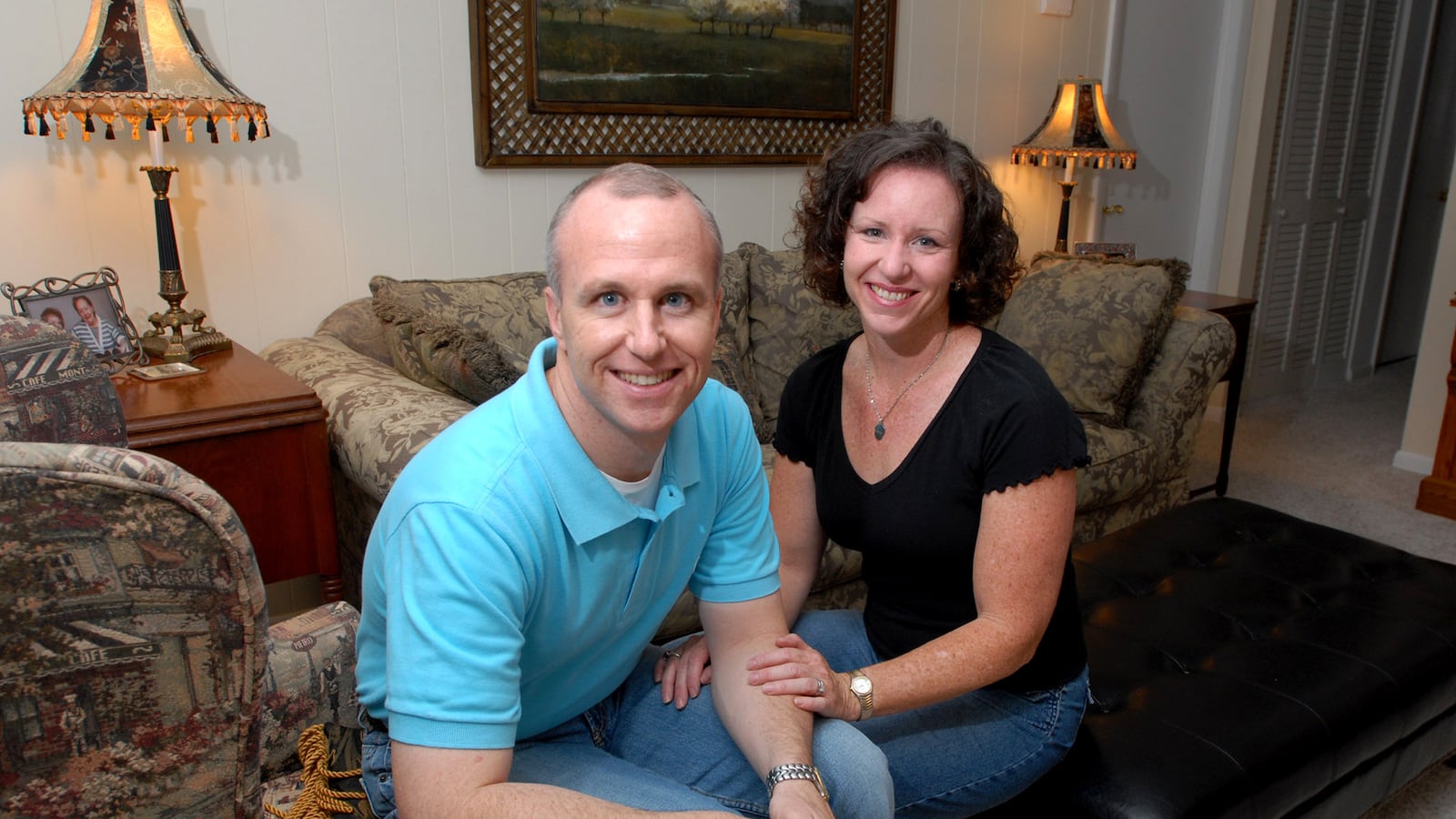It might seem like the “ex-gay” movement ended Thursday, with the closing of Exodus International, the evangelical organization that once practiced “reparative therapy” for gay Christians, and with the apology of its president, Alan Chambers, for the hurt he has caused.

“I am sorry I didn't stand up to people publicly ‘on my side’ who called you names,” Chambers said in an open letter addressed to the “LGBT community.” “I am sorry I have communicated that you and your families are less than me and mine.” The statement announced the Exodus board’s unanimous decision to close its doors.
The move is certainly significant, and is no doubt intended to have a powerful symbolic effect. But the announcement is only the capstone of the rapid disappearance of the “ex-gay movement,” a constellation of evangelical ministries (and a few Jewish and Mormon offshoots) that embraced pseudoscientific therapies to change the sexual orientation of gay believers. The life was sucked out of Exodus by both the momentum of the gay-rights movement and the constant defections of people previously associated with the movement. But perhaps more than anything, it was Chambers himself who had had enough.
Largely unnoticed by the mainstream media, Chambers had for several years been distancing Exodus from the discredited ideas behind reparative therapy and the organizations’ previous claims to have helped “thousands” of people overcome their homosexuality. During his 11 years at Exodus, Chambers gradually moderated his claims about the possibility of changing sexual orientation, questioning the organization’s talk of “change” and rejecting the term “ex-gay.” His 2009 book, Leaving Homosexuality, revealed some of the messiness of his own marriage to a woman after years of living an openly gay life. A year ago Chambers explicitly denounced reparative therapy and said he had never met anyone who changed their sexual orientation, sparking a furor among more conservative ex-gay groups.
But Chambers’s gradual makeover of Exodus seems largely driven by the constant deluge of bad news on every possible front. Gay marriage is ascendant, driven by a rapidly shifting public opinion. The pillars of the ex-gay movement’s pretensions to scientific credibility were being demolished. Warren Throckmorton, an evangelical psychologist who studies sexual identity, eventually concluded that there was no evidence reparative therapy worked and became a strong critic of the ex-gay movement’s claims. The well-known psychiatrist Robert Spitzer publicly renounced and apologized for his controversial 2001 study that had been greeted as a holy grail for those looking for evidence therapy could change sexual orientation.
And then there were the “ex-ex-gays.” Both former ex-gay leaders and participants were a constant PR nightmare for the ex-gay movement as they came out, in some cases for the second time, and announced what Chambers would eventually acknowledge: that no one they knew of had ever become straight. In 2007 three former Exodus leaders apologized for their involvement in the organization. In 2010 Baptist minister and ex-gay author George Rekers was caught at the airport with a gay “rentboy” who claimed he had given Rekers “nude body rubs.” In 2011 John Smid, the director of a California ex-gay group then known as Love in Action, apologized on his blog after participating in a documentary that forced him to confront the hurt he had caused.
Even before Exodus explicitly began its rebranding, the ex-gay movement had been decimated inside and out. “We’ve ceased to be a living, breathing organism,” Chambers wrote. The therapies that had once formed its backbone, discredited mainstream ideas from the mid-20th century, had became fossilized in pseudoscientific conservative organizations that lacked even the appearance of credibility. Horror stories about depression and suicidal thoughts from those in ex-gay therapy were reported in the mainstream media and had an effect even on the religious. Last year, Orthodox Jewish rabbis came out against the therapy just a few months after California became the first state to ban it for teens under 18.
But perhaps the biggest factor is the shifting experience of conservative Christians themselves, who can no longer insulate themselves from the reality of the gay people they know and who have begun to accept that sexual orientation isn’t a choice. Gay Christians are no longer isolated from accurate information on the Internet, along with a healthy dose of LGBT criticism of ex-gay claims. Whatever theological beliefs evangelicals may hold, it’s becoming more and more obvious that conversion therapy is a relic of a world that’s all but disappeared.






